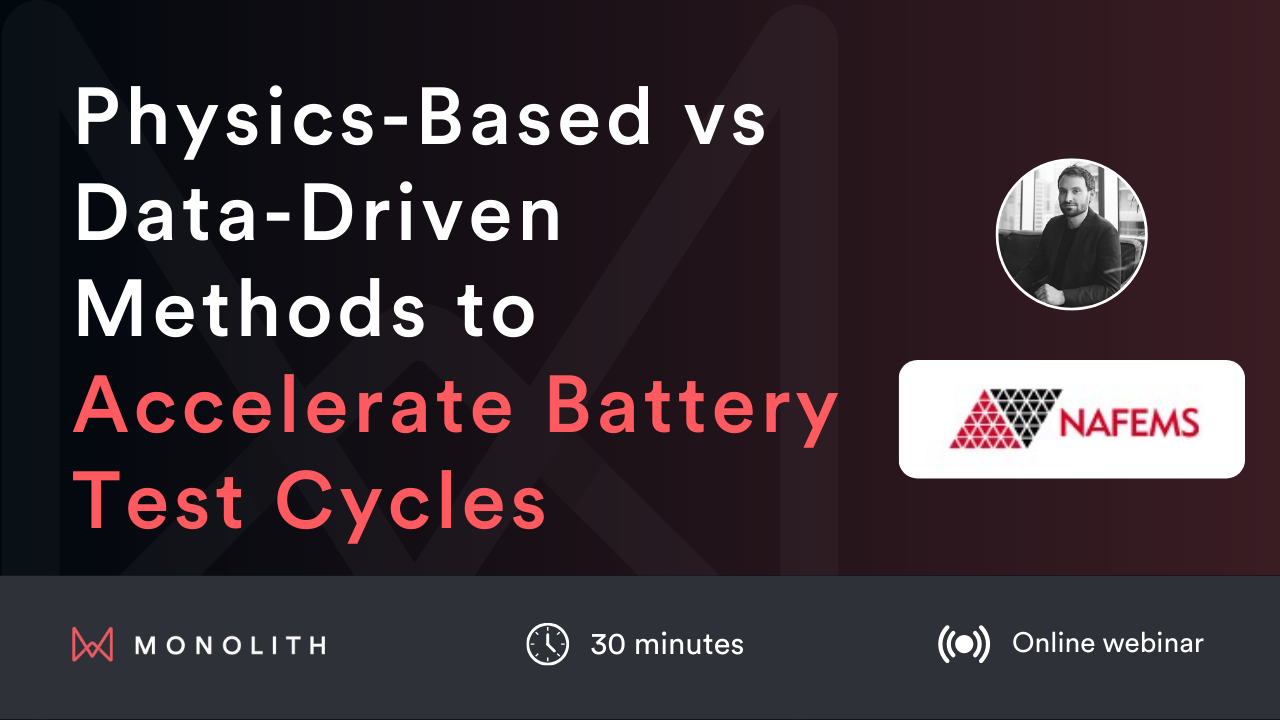On-demand webinar
Physics-based vs. data-driven methods to accelerate battery test cycles with NAFEMS

Dr. Richard Ahlfeld, Monolith CEO, will discuss machine learning in engineering tests. He'll compare physics-based and data-driven models using a battery test case study. He'll show how Machine Learning can complement physics-based approaches and validate complex systems.
Testing every possible scenario is impractical. Over-testing confirms known information, while under-testing risks missing issues. Physics-based models used in engineering tests have limitations in dealing with uncertainties and non-linearities. Optimising design parameters through experiments is time-consuming, as in the case of the battery test study.
Monolith has developed an early-prediction model called the "Next Test Recommender" to provide engineers with active recommendations for the exact best test conditions to choose from for the next batch of tests. The model ranks the most impactful new tests to carry out based on an analysis of previously collected data.
This approach substantially reduces the time and the number of experiments required, and it replaces traditional exhaustive search methods that would take over 500 days with just 16 days (equivalent to 384 hours). Consequently, the Next Test Recommender has proven to be highly effective in reducing the time and resources needed for testing.
Check out the entire 'Artificial Intelligence and Machine Learning for Manufacturing' online seminar from NAFEMS here.
Watch on-demand webinar
Meet our speaker

Dr. Richard Ahlfeld
CEO at Monolith

